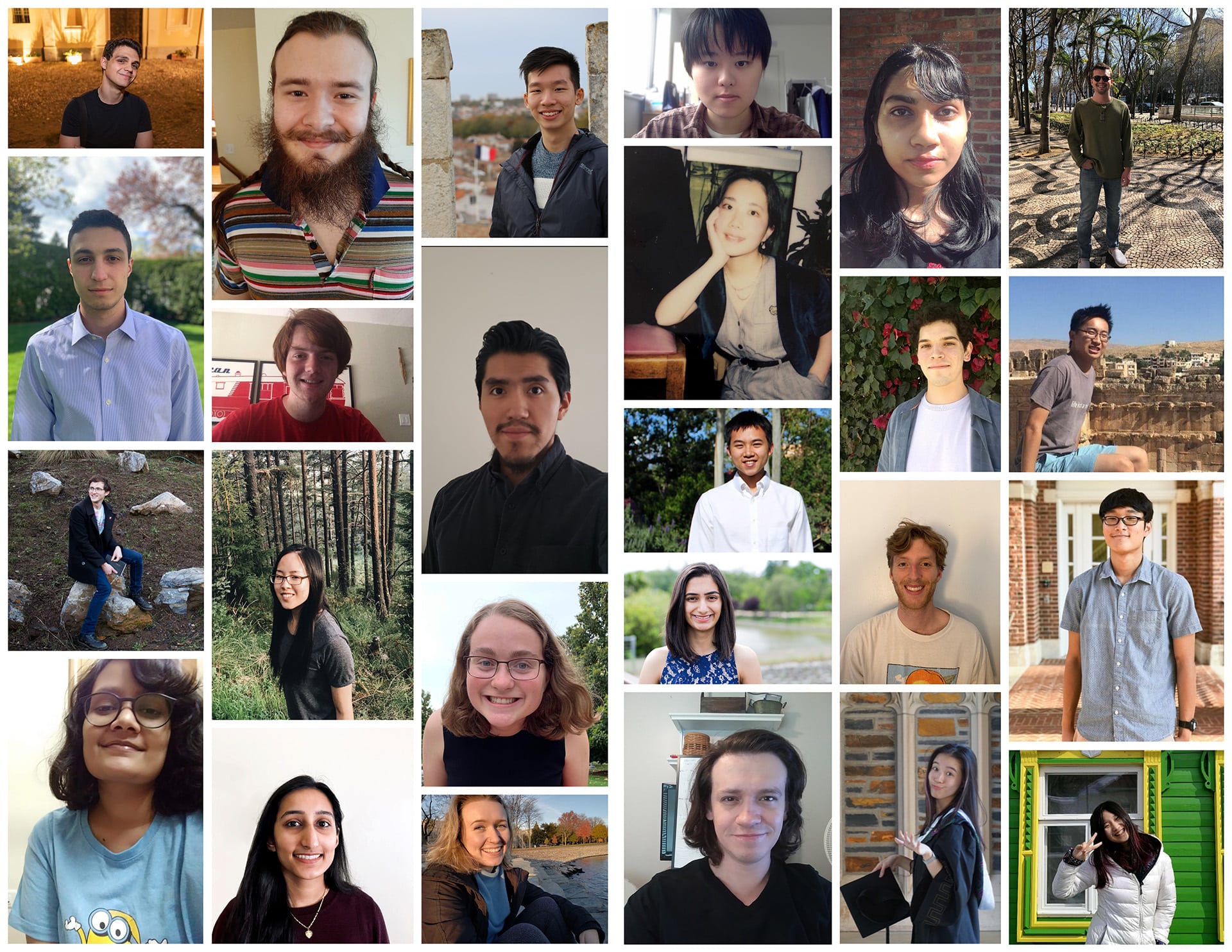CMU's Department of Philosophy Builds Community Through Summer School
Applications are open for summer 2021
By Stefanie Johndrow
Media Inquiries- Dietrich College of Humanities and Social Sciences
- 412-268-6094
When Jeremy Avigad agreed to teach a two-week logic course in the summer of 2005, he didn't know it would inspire a hallmark within Carnegie Mellon University's Department of Philosophy.
The course Avigad taught was part of a program held at the University of Notre Dame for graduate students in logic that offered students free tuition and housing.
"I was surprised that close to 50 students showed up, and I was struck by how much they seemed to enjoy it," said Avigad, professor of philosophy and mathematical sciences. "It was like summer camp. Students had the opportunity to explore things they were interested in without the pressure of exams or grades. More importantly, they were able to bond with others with similar interests and establish close friendships."

Similar to the 2020 program, whose class members are shown above, this year's Department of Philosophy summer program will be held virtually.
The year prior, Avigad and his colleagues were discussing ideas for raising awareness of specialized curricula within the department. When he returned to CMU, Avigad approached Teddy Seidenfeld, Herbert A. Simon University Professor of Philosophy and Statistics, about the Notre Dame model.
"For the students, it would be a free summer program, an opportunity to explore topics that might not be supported at their home institutions, a glimpse of contemporary work in logic and formal epistemology, a chance to make long-lasting friendships, and — on top of all that — a good advertisement for our department," Avigad said.
In 2006, Avigad held CMU's first Summer School in Logic and Formal Epistemology. The three-week summer school is for undergraduates — and students who have just completed their first year of graduate school — in philosophy, mathematics, computer science, linguistics, economics and other sciences. For most students, the summer school is their first introduction to the cross-disciplinary fields of research. The instruction is free; students need to pay for transportation and their meals only. There are no grades and students forge lasting links between the various disciplines.
For Francesca Zaffora Blando, the summer school was a transformative experience.
"For me, one of the most amazing aspects of the summer school was the fact that we were treated as researchers even though we were undergraduate students," said Zaffora Blando, who attended the summer school after her second year at the University of Edinburgh. "We had the opportunity to closely interact with the faculty members teaching the various courses by participating in daily tutorials and problem-solving sessions. This gave me a chance to engage with exciting new topics and research-level questions in a much more serious way than most undergraduate students usually can."
Zaffora Blando went on to study logic, formal epistemology and philosophy at University of Amsterdam, University of California, Irvine and Stanford University. She obtained her Ph.D. in Philosophy and Symbolic Systems at Stanford University in July, and this fall she returned to CMU's Department of Philosophy as an assistant professor in logic and computation.
Crediting the summer school for the career path she's taken, Zaffora Blando remembers the guidance of her summer school instructors — the late Professor of Philosophy Horacio Arló-Costa; Alumni University Professor Clark Glymour; and Patrick Suppes Professor of Philosophy Wilfried Sieg — as being particularly impactful.
"They all took the time to talk to us one-on-one: we were asked about our research interests and our plans for the future, and we were given useful suggestions to help us move forward," Zaffora Blando said. "I was given a lot of helpful advice about how to best broaden my knowledge of logic and about the possibility of pursuing a graduate degree. This gave me the push I needed to feel confident enough to pursue graduate work in logic and formal epistemology."
A former summer school participant returning to CMU isn't unusual. According to Seidenfeld, it's common to have a summer school alumni among the department's new cohort of graduate students each year.
Seidenfeld acted as director of the summer school for the past several years and helped shaped it into an inclusive and transformative experience for students. Seidenfeld also saw the program transition into a virtual format last year, as a response to the COVID-19 pandemic. Transitioning the summer school to a virtual format allowed for more students to be accepted. The program will be held virtually again this year under the guidance of Adam Bjorndahl, an associate professor in the department and expert in modal logic, game theory, decision theory and formal epistemology.
"I first taught in the summer school in 2015, during my first summer at CMU, on the invitation of Dr. Seidenfeld. It was a fantastic experience and I immediately recognized the incredible value of the program. This summer will mark my fifth time offering a course, and I'm honoured to be directing the school this year as well. Students are hungry for this sort of experience, and its momentum seems to build with each passing year," Bjorndahl said.
Applications for the 2021 summer school close at 1 p.m. EST on Tuesday, March 16. The summer school is open to undergraduates, as well as to students who will have just completed their first year of graduate school, and applicants do not need to be U.S. citizens. Students who attend the summer school will attend sessions taught by Mandy Simons (natural language semantics); Francesca Zaffora Blando (algorithmic randomness and learning); Wilfried Sieg (proofs as objects); and Adam Bjorndahl (epistemic logic and topology).